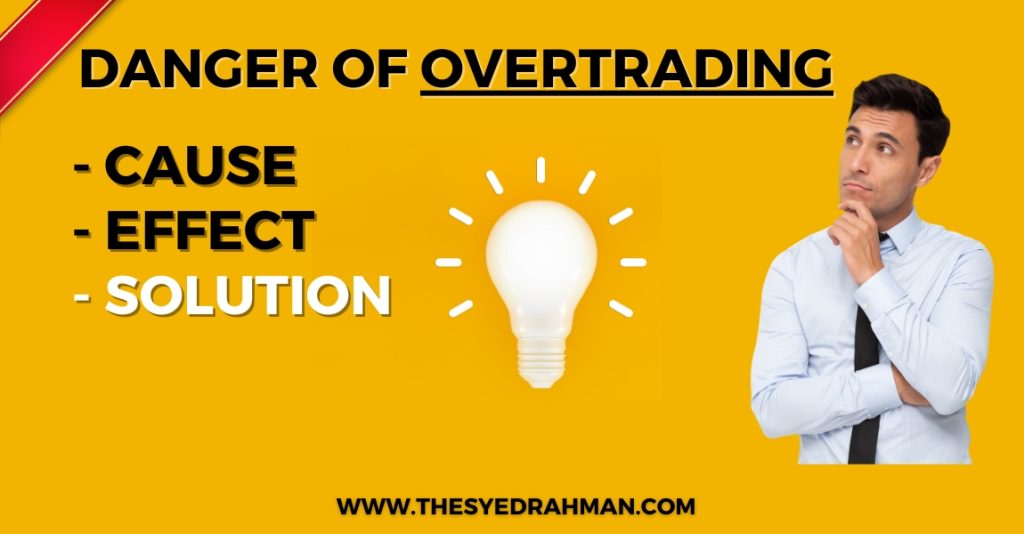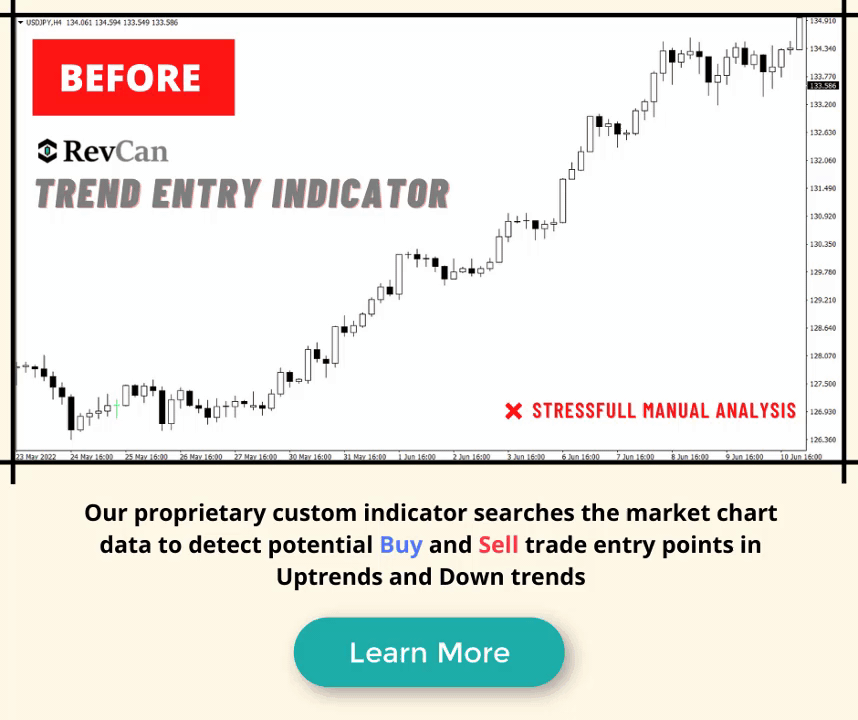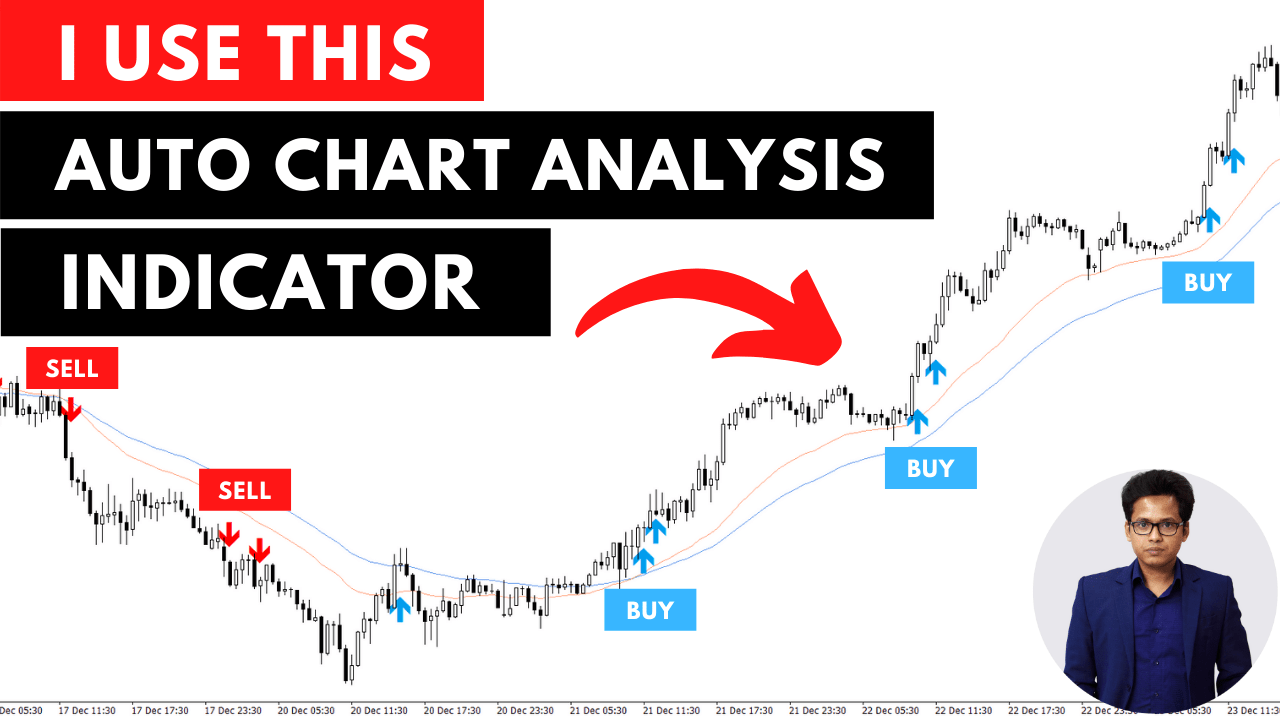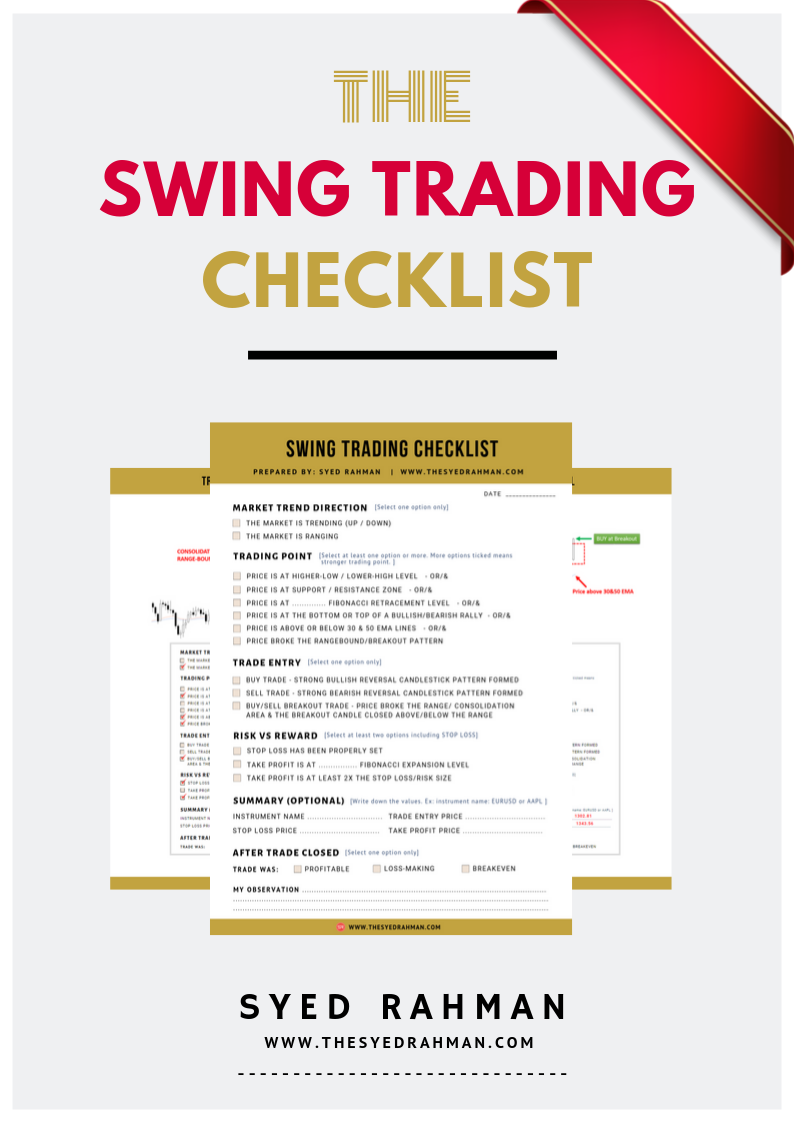Hello trader, it’s Syed.
I have been trading for over ten years and whenever someone asks me how to get out of a consistent account-blowing habit, I mostly give them only one suggestion. Only one rule to follow. And that is not to overtrade.
Overtrading is the biggest mistake that you or any trader can make. The habit of overtrading can and will destroy your trading account, and your emotions, and damage your confidence as a trader if you don’t stop it right now.
In this article today, the main topics I will be covering are:
- The concept of overtrading
- Why it’s a MUST no-no?
- Analyzing the common triggers behind overtrading behavior
- An imaginary story showing how it happens
- 3 Actionable solutions to stop overtrading in the Forex, Stock, and other financial markets
Ready?
Let’s get started.
What is overtrading?
In simple terms, overtrading is when you trade too much or too often, or too randomly without a clear and consistent trade entry and exit plan.
You may think that more trading means more profits, but that’s not true. In fact, overtrading can make you lose money, time, and energy.
Why is overtrading bad?
First, let me give you some very common but important reasons why Overtrading is a risky habit:
- It increases your trading costs. You have to pay commissions, spreads, fees, and taxes for every trade. These costs can eat into your profits or increase your losses when you do overtrade. You may not realize it, but it’s serious damage to your trading account.
- It exposes you to more risk. The more trades you make, the more chances you have of losing money. Because you have less time to analyze the market, evaluate the risk-reward ratio, and manage your positions properly.
- It reduces your trading performance. Overtrading mostly comes from emotional trading, such as fear, greed, excitement, boredom, or revenge. These emotions can cloud your judgment and make you deviate from your plan. You can also miss better opportunities or hold on to losing positions for too long.
- It affects your psychology. Overtrading can cause stress, anxiety, frustration, anger, depression, or burnout. These negative emotions can impair your decision-making process and affect your personal and professional life.
- It takes the fun out of trading. When you are overtrading, you are not giving yourself enough time to analyze the market and make good decisions. This can make trading feel like a chore, and it can eventually lead you to give up altogether. And you don’t want that. Trust me.
- And many, many more reasons why it is bad to overtrade.
3 Common reasons why people overtrade.
Here are 3 common reasons why a trader overtrades the market:
- When a trader does Revenge trading: Revenge trading is when a trader is trying to make up for losses. After a few losing trades, a trader may start to overtrade in an attempt to make up for their losses. This is a dangerous game, as it is often more likely to lead to further losses.
- A trader is bored or anxious. Some traders overtrade when they are bored or anxious. They may feel like they need to be constantly trading in order to feel excited or in control. This is also a dangerous habit, as it can lead to impulsive trading decisions.
- A trader is chasing the market (FOMO effect). When a trader sees a stock or currency making a big move, they may be tempted to chase the market. This is called FOMO or Fear Of Missing Out. This is a surefire way to lose money, as it is almost impossible to time the market perfectly. You just can’t have all and every move of the market.
What happens when someone overtrades?
Let me tell you an imaginary story of an overtrader so that you know what happens with a trader’s mind when they do overtrade the markets. Let’s see if this relates to your own trading.
A trader named Oliver, who has just opened a Forex account with $10,000. He wants to make money fast and has no specific trade entry and exit plan. He trades based on his gut feeling.
[Question: Do you also trade based on your gut feeling and no specific trading plan?]
On his first day, he sees that the US dollar is rising against the euro due to positive data. He buys 5 lots of EUR/USD at 1.1800. He does not set a stop-loss or a take-profit.
The market moves 25 pips in his favor and he makes $1250 in an hour. He feels excited and confident and increases his position and buys another 10 lots of EUR/USD at 1.1850.
This time, the market reverses and falls due to whatever reason. Oliver sees his profit turn into a loss and panics. He does not close his positions and hopes that the market will bounce back.
The market keeps falling and Oliver loses $2500 in an hour. He feels angry and frustrated and further increased his position size and shorts 20 lots of EUR/USD at 1.1750, hoping to recover his losses.
The market turns around again and rises due to positive news from the US. Oliver sees his loss increase and panics again. He does not admit his mistake and hopes that the market will drop.
The market keeps rising and Oliver loses $4,000 in the next couple of hours.
He feels depressed and desperate and shorts another 20 lots of EUR/USD, hoping the price will start falling again so that he will make a big profit and recover the loss he already made.
The market does not stop rising and reaches a new high making him have an even much bigger loss for the increased lot size. Oliver sees 90% of his account wiped out. He has now lost $9000 in a few hours. He now has only $1000, out of $10,000.
Now that he lost a big portion of his account, Oliver realizes that he has overtraded. He feels devastated, angry, and emotionally damaged. But it’s too late now to reverse the action.
Does this trading scenario above look familiar?
It happened to me many times before. Every trader goes through this type of experience several times in their trading journey. I am sure you had a similar experience too.
But it needs to be stopped if you want to grow your trading account.
How overtrading is the number one reason why traders blow their entire account
Oliver’s story is not rare among traders who overtrade. It’s the most common thing every trader faces in their trading career, several times.
Overtrading is the number one reason why traders blow their entire accounts because it exposes them to unnecessary risks and costs that vanish their capital.
Some studies show that overtrading accounts for more than 60% of trading losses among retail traders. Overtrading also lowers the chances of making consistent profits in the long run.
The overtrading solution: How to stop overtrading?
Successful trading requires a disciplined mindset.
“It’s your mind you have to control. It’s you who have to change.”
In this part of the article, I will focus on three (3) simple steps that can help you break the habit of overtrading. I will explain each step in detail and show you how to apply them in your trading.
So, overtrading can be stopped by taking mostly some psychological and disciplinary measures, which are the:
Solution 1: Limit yourself to a maximum number of daily trade entries.
This is the first criterion to stop yourself from overtrading the markets. Promise yourself not to take more than 2-3 trades a day. Whatever happens, do not break the promise, be determined. Even if you get the most probable, highly potential trade entry setup, you just do not take the trade after the daily 2-3 trade threshold.
If you stick to the 2-3 maximum trades a day then you will have a sufficient amount of time to analyze the market, better timing for the entry and exit points, understand the relevant factors that can move the market in your trade entry direction. This trading habit will make each of the 2-3 trading positions much more accurate and profitable than if it were for 10-12 trades. Follow this, and you will be halfway there to become a disciplined trader.
Solution 2: Do not revenge trade and get off your trading desk after a losing or winning trade.
Most of the overtrading in Forex and stock markets occurs after we lose a trade. The human mind is incapable of accepting a defeat, whether it’s on the battlefield, chess game, or in a trade position. We always want to win. But we cannot expect to win every time. Accept that.
When people lose a trade, they want to trade more to make up recover the loss. They want to take revenge on the market. This time they are biased and make an irrational trading decision and therefore takes random trade entries with bigger position size, and more often these trades end up in even bigger losses.
A similar thing happens when people win a trade. They become overconfident and want to make more money.
Greed led them to take more trade entries but this time it is not based on pure market analysis, but rather based on gut feeling, which cause them to lose the winning trades profit, and then they try to trade again to recover the lost profit, then more wrong trading decision, creating a loss trading loop, until the account balance has vanished.
So, after you lose a trade position, just click on the close icon of your browser or trading terminal, shut it down, and get off your trading desk for at least an hour. Accept the fact that you lost a trade and it’s okay to be wrong.
You will get another trading chance if you still have your capital in your trading account. Do something, anything that does not involve looking at your mobile or computer screen. Go offline for at least an hour. Have a break.
The next time you come back to your trading desk, it will be a much better version of you. Your brain will work better. The market will seem fairly fresh again. Your trading judgment will definitely improve. And chances are higher that your next trade entry will be a winning position. Trust me.
Solution 3: Do not risk more than 2% – 3% in a trade.
I am sure you have read and heard this line before, and let me tell you, it works in real.
To make it more understandable, and realize its importance, let me give you some simple calculations.
For example, if you have $1000 in your trading account, you take 3 trades a day, you lose 3% maximum in each trade, and let’s say you lose all of the 3 trades, then your loss will be -$30 in your first trade ($1000 x 3% = $30), your 2nd loss will be -$29 ($970 x 3% = $29.1), and your 3rd loss will be -$28 ($940.9 x 3% = $28.2), which is -$87 of loss in total from 3 losing trades.
If you do not trade again on that day, then the next day you will still have $913 in your trading account, a new day, and a new market condition with opportunities to make some profitable trading decisions.
But, let’s say, if you lose 15% in each of your trades instead of 3%, then you will lose $385 dollars on that day, leaving a little over $600 to begin your next trading session.
Now, realize how much pressure this will create in your mind. You had $1000, and now you have $600. Do you know how much profit you have to make this time to take it back to $1000 of your initial trading balance again?
Now, let’s say you learned your lesson, the next day you take only a 3% risk and 6% profit target, then if you make a 6% profit of the remaining $614 from each of the next trades, you will have to win 9 consecutive trades to take it back to $1000. Compared to the initial 3% loss strategy, if you lost only $87 by taking a 3% maximum loss, then it will take you only 2 winning trades with 6% profit from each to take it back to positive $1044.
Do you see it now? Do you realize the importance of risking less?
9 trades vs 2 trades to make up the loss of $385 and $87.
This thing here, this defines how much pressure you will have in your mind when you sit in your trading desk to make a profit for your living. And it’s a huge thing to consider.
So, in each of your trades, do not risk more than 3%. Do not take more than 3 trades a day.
Therefore, if you have a $1000 account, then open your trading position size in a way that your stop loss is $30 (3%) and not $150 (15%). It’s as simple as that.
Follow these 3 trading rules above, and you will be guaranteed to see yourself as a consistently profitable trader in the near future. It will benefit you so much you can not even imagine.
Why it is important not to overtrade?
It is important not to overtrade because overtrading can have serious consequences for your financial health; mental health; and trading career.
Financially – Overtrading can lead to losing money; blowing up accounts; going into debt; or facing legal issues.
Mentally – Overtrading can lead to stress; anxiety; frustration; anger; depression; or burnout.
Professionally – Overtrading can lead to poor performance; low reputation; loss of credibility; or quitting trading.
Therefore, it is vital for traders to avoid overtrading and trade smartly instead.
Conclusion
Overtrading is a common and deadly mistake that traders make. It happens when you trade too much or too often without a clear and consistent plan.
Remember, overtrading can ruin your heard-earned money, emotions, and confidence.
I hope this article has helped you understand what overtrading is; why it is bad; what causes it; how to overcome it; and why it is important not to do it.
If you have any questions or comments about this topic, please feel free to leave a comment below.
This is all for today. Thank you for reading the post.
I wish you all the success in the world.
Syed Rahman





